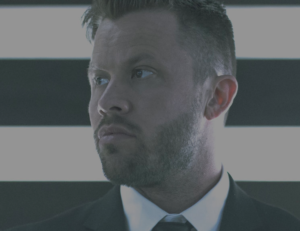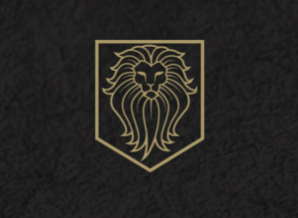Ep. 64 Embrace The Lion with Cody Jefferson
Brad Post, Create the Movement, host
Cody Jefferson, Embrace the Lion, guest
Brad Post, Create the Movement, host: Welcome back to Create the Movement Podcast. This is your host, Brad Post, and I’m honored today to be speaking with a friend of mine, Cody Jefferson. Cody, how are you doing today?
Cody Jefferson, Embrace the Lion, guest: Doing well, man. It’s an honor to serve you and your audience. I appreciate the opportunity.
Cody Jefferson of Embrace the Lion
BP: Absolutely. So, Cody has a company called embracethelion.org. He’s been featured in Entrepreneurmagazine and USA Today, and again, I’m just honored to be able to interview him and have him share the wealth of knowledge that he has.
Cody, could you start out with your story and how you came to start Embrace the Lion?
CJ: Yeah, sure. So, I was in occupational ministry for 12 years. So, for 12 years traveling the country, speaking, leading teams both in person and virtually online. I was a youth pastor. I was a worship pastor. I did a lot of things, carried a lot of roles. Which entrepreneurs will be very familiar with. Right? When you’re a person who can do a lot of things you end up doing everything.
And so, I was in ministry. It was really great [] through that. I was also building businesses, doing some flipping, some social media management, media creation. Having a really good time. The problem was I was overworking myself and my priorities were completely skewed. Because I was somebody who really fed off of affirmation and based my value on being needed.
What ended up happening is really just fell through a bit of a burnout. I went through a pretty public divorce. In the midst of all of that, I lost several family members to completely unrelated fatalities. Some very tragic and making the news, and so you have to answer that and talk about that all while trying to show up for everyone and be all things to all people.
What I realized through this, in the midst of having an adrenal shutdown, hormonal shutdown, and going septic and unconscious in the hospital because I could no longer handle all the stress, is that for me my passion was helping people who were ready to come alive – to come alive.
Helping entrepreneurs tell better stories. Helping businesses lead into market not with profit being the end game but really people. And so, when we can place people over profit we find that we’re actually more effective in creating energy with both.
BP: That’s good.
CJ: And so, for me, stepped out of ministry because I knew the call on my life was not to be showing up, and this is going to be a little cliché but, as kind of a house cat. Right? I was the guy who was the ‘yes’-man. I said, ‘yes’ to everything. I was a people pleaser. I was an ass-kisser. I don’t think I can say ‘ass’ on your show, but I just did.
I was the guy who would never say ‘no.’ Now, I would say ‘no’ to my own family because, you know, I’m useful, I need to do these things. People are counting on me so you guys just take a backseat. It wasn’t that I was a bad family man, it was just that my priorities were skewed.
So, what I decided was I needed to pull out of this particular endeavor to focus on those who are ready to move forward and take massive action in their lives. I’m here to help, specifically, a lot of men who have maybe created a lot of wealth for themselves, but it’s cost them everything. So, helping them come back and say, “Okay, cool. We’ve got the profit now, but what about the passion? What about the purpose? What about the power?”
I don’t care how much money you make if your family’s falling apart, if your health is in shambles, if you have no spiritual direction in your life. And listen, I don’t care what direction you’re going, but you’ve got to go somewhere.
And so, for me, it was removing myself from an environment where I would constantly, as long as I said ‘yes, keep being used.’ And that’s no fault of the organization. That’s just a product of business in and of itself. And to keep showing up for people who were really never going to show up for themselves.
We use faith and spirituality and the church as kind of a crutch to say, “I’m just going to keep showing up small. I’m going to keep waiting on whatever deity I choose to believe in.” Rather than saying, “You know what? I’m just going to realize that I need to put my own boots on. I need to walk this out. And I capable of so much more if I would just change what I believe to be possible and put the work in.”
So, that’s who I work with. I work with organizations; I work with corporations; I work with individuals. I help entrepreneurs tell better stories. I help people pursue their endeavors and discover what it is that they’re called to do with their life and then push into that again with power. I like to think of it this way: passion are things that we love to do. Purpose is how that makes people, and power is when we can put all of it together and really create a dynamic that not only changes our environment but the environment around us, and ultimately, the world.
The Four Pillars of the Embrace the Lion Approach
BP: That’s exciting. One thing that I wanted to ask you is you’ve got this, it’s called the ETL Approach. I guess that’s Embrace the Lion Approach. Correct? Can you share a little bit about that? I was looking on the website today, embracethelion.org, and it shares your head, heart, health, habits. Correct? That was kind of what you touched on briefly there. But could you go a little bit deeper into that?
CJ: Sure. Absolutely. So, you’ll find on the page that there’s me just holding up a middle finger to you.
BP: Right!
CJ: And the reason being is this is all of your, I respect all excuses the same. They will all receive the same finger from me. So, I refuse to play small in life and I refuse to let those that I work with play small.
So, we are based on four pillars. That is head, heart, health, and habits.
Head is your mindset – what you believe to be possible. So, what we do is we help people to establish what is called the Growth Mindset. A lot of us live in a fixed, or limited mindset that says because of where we grew up, because of how we were raised, because of what people told us.
“Our whole family’s big-boned so we’re destined to that.” “I’ve lived a life of failed relationships, so that’s all that’s possible for me.” “I’ve never been able to succeed.” “I grew up on the wrong side of the tracks.”
All of these things are limited beliefs that really nobody believes them except you. And it doesn’t matter if anybody else believes them. Right? It doesn’t matter if they’re true or not. When we hold a thought or a feeling long enough it becomes our truth and it becomes our reality. It doesn’t matter if it’s universally true or not.
So, what we do is we help you to discover that it’s all bullshit. There is actually no test that can quantify what your potential is and what you’re capable of with the right environment, the right coaching, the right mindset at the right time, the right people. There really no baseline to say this is as good as it gets for you.
So, when we continue to push forward, we continue to chase the us that is six months to a year down the road. What we find is we consistently move forward. We consistently make progress. And we consistently defy our own odds by what we thought was possible.
So, that’s head.
BP: Is that usually where you start? You start there. Correct?
CJ: Yeah, if you can change your mindset you can change anything. And all of these are very, very synergistic. So they all work together. It’s not like we work on one and then move forward. This is a constant cycle. This is a constant process.
So, we have head. We have heart – your relationship to yourself, your relationship to others, and your relationship to your source – whatever that is. Some call that God, some call that the universe, whatever that is for you.
We focus on creating healthy relationships, a healthy self-image, a healthy relationship with those around us – even those that we feel have hurt us or wronged us because inevitably that’s like drinking poison and hoping that they get sick. Right?
Then we have health – physical health. I am a firm believer that if you can master your body you can master anything. Right? Because it takes the most amount of self-control and self-respect and you’ve got to put work in. There’s no faking it.
So, again, working with me it’s a non-negotiable. You’re going to be showing up every day. We’re going to be tracking what you eat. We want to turn your body into what it was created to do: which is to be a vehicle through which you change this world.
Again, I don’t care how much money you make. If you’re a 100 pounds overweight you can’t play baseball with your kids. What’s the point? I don’t care how fantastic you think your platform is if physically you can’t show up and you can’t deliver.
And so, on the back end of that we habits. Which daily, powerful habits allow all of this to take shape? And all of this – head, heart, health – it all plays into business as well. It changes what we believe to be true financially about ourselves and the stories we’ve said about money for all of these years. Changes how we relate to our clients, to our prospects, to our potential buyer, to those who work for us – our employees, our superiors in business.
Also, health. How we approach business with a physical tenacity to be able to move forward with relentless execution.
So, we put all of that together and that is the ETL Approach. So, I don’t believe in excuses. I believe that everything in this life in some way, or another, is your fault. So, while we cannot always control the events of our lives, we can always control our response which leads to the outcome. So, how you respond in life, the ways in which you interact the events that are inside and outside of your control, everything is your fault.
And whether you believe that to be true, or not, again, tells me where you’re going to go.
Beyond Coaching – Leadership Development and Event Speaking
BP: That’s good. A couple of things you do, you do one-on-one coaching, also leadership development. And then you also do events, too. Correct? Can you expand on the events a little bit?
CJ: Yeah. I get asked frequently to speak at events across the country. And this can be on a lot of different platforms. This can be on everything from how to tell a powerful story that captivates a cold audience and turns them into warm buyers through social media.
It can be on how to create copy that can work. It can be on how to take control of your life after divorce. It can be how to move forward past where you were spiritually to where you want to be. I speak on a lot of different topics because I’ve had 14 years in the game of walking with people through, basically, every scenario imaginable. Along with building a lot of successful businesses and then selling them.
So, for me, I travel, I speak to organizations, I speak to corporations, I speak at conferences. I’ve got a conference coming up on June 22nd through the 24th in Phoenix, Arizona called Meltdown in the Desert. If you are an entrepreneur, if you’re creative, if you’re somebody who’s looking to get your voice in front of a digital marketplace – it is the event for me that changes the game.
I’m honored to be speaking at this year’s event. It’s going to be absolutely phenomenal. Some of the biggest voices in social media marketing, in entrepreneurship, in campaigning, in click funnels, and all the way through which we push to capture leads and turn them into buyers. All the way through which we use the pain of our story to convert that into power to reach an audience. Because, again, we try to connect emotionally with our buyer, our client, or whoever it is we’re trying to serve at the highest capacity
So, yeah, I travel. I speak. This is an event I’m really, really excited about. Again, it’s in Phoenix, Arizona and it is June 22nd through the 24th. It is meltdownevent.com. So, they can check it out there.
BP: Awesome.
CJ: I’m one of a handful of incredible, incredible speakers and presenters that I’m just honored to be alongside.
BP: That’s exciting. I bet you’re looking forward to that. Did you do that last year, too? Or, is this your first time to share?
CJ: So, this is my first time speaking there. I went last year and really connected with a lot of people to where I connected with Entrepreneur. And they just really vibed with what I did. I’m a firm believer that who you know is as important as what you know. And that relationships, powerful relationships, that can help move you forward, help mentor you from where you are to where you want to be, are absolutely pivotal in any organization.
What I loved about Meltdown is it gave my business some real legs to move forward in terms of creating a more massive impact in a shorter period of time. I created relationships there that are invaluable to me that I will always honor because they have helped me move forward in ways that if I was going 50mph they allowed me to 500mph.
Honored to be speaking there this year. And really, really excited.
The Marketing Origins of Embrace the Lion
BP: Can you share with us a little bit about when you started Embrace the Lion? What were some of the marketing techniques that you started with? Obviously, you have the website; you have the downloadable coupon book. What were some of the things that you started doing besides, obviously, hustling and meeting people? What were some of the things that you as you got started in this?
CJ: Sure. What I think is really, really important to understand because I think this can be a little deceiving. It’s important to understand that while I pivoted and reached into a different market, I’d been doing what I do for 12 years before it. I had been traveling and speaking. I’d been speaking at conferences. I’ve been leading teams and organizations from four people to 4000 people. Speaking to 10 people to 10,000 people.
We have to make sure, and I’m always really, really upfront to say, “Listen, I’ve just been doing this a long time.” So when I made the pivot from a spiritual market, or the church market, into business or personal development, it was a pretty easy pivot for me because I already had trust and equity built in and I already had a bit of a following.
So, from there, I just started telling the truth. I just started sharing the parts of my story that nobody knew and that were pretty dark. And helping people understand that where they are isn’t where they ultimately have to end up. And so, I just started sharing. I started sharing my spiritual journey. I started sharing what it was to walk through divorce. I started sharing what it was to be a classic workaholic and a classic ‘yes’-man – a typical nice guy. And the process of evolution of myself in turning into a successful, multi-business owner who helps encourage and equip others on the same journey.
I spoke really candidly about my own struggles so that men who are walking through the same struggles would feel confident and comfortable to come to me. Everything was organic. There was no ad spend. I wasn’t trying to drive people to my website. Everything was done via social media and everything was done with my MacBook camera, my iPhone, and the camera on my iPhone.
Everything was super-grassroots in terms of I didn’t have a lot of ad spend. I just started sharing: sharing some of my expertise, sharing some of my story. And through that started to generate more leads, started to generate consulting clients and coaching clients, started to have the interest of organizations. Because they knew my track record of helping organizations within, and without, the church to create powerful structures of healthy team dynamics, healthy staff retention, clarifying the ‘why’ in the vision of the organization while keeping ROI strong. Keeping a healthy profit margin moving forward. We don’t do that at the expense of our employees. We don’t do that at the expense of our ethics. And we don’t do that at expense of our client.
So, helping people move forward with ethics at the front at the front with the ‘why’ and the vision at the front. And then, the ‘what’ and the ‘how’ kind of trailing behind that. Because if we can answer the ‘why’ first and foremost, then we have no problem and we can communicate somebody’s pain to them and articulate a solution to that better than they can articulate it themselves, they automatically give us permission to solve that problem.
So, for me, I just started sharing my areas of expertise. I started sharing my areas of expertise in fitness having been in the fitness industry for 10 years professionally. So, as you walk through all of the scenarios I started to social-proof myself. People started to give testimonies. People started to share how this changed their life. Organizations started to share how they were up ROI, they were able to drive down their CPL (cost per lead), and create a really, really healthy business environment. And a really healthy environment for their staff to feel like they were a commodity – that they were not just expendable.
Again, for me, it was all organic. But, for me, again, I had the social-proof beforehand. So, when I work with organizations now we start internally. And then we decide what’s going to be the healthiest route for us to move forward. Is it going to be SEO through a website? Are we going to drive cold traffic there through click funnels or some sort ad campaign? Are we going to use Google AdWords>? There’s a lot of different ways to go based on the needs of the organization and the needs of the individual entrepreneur.
I’m a firm believer in social media. I think the cost per lead is the lowest of any type of digital marketing. And I think it’s a really under-utilized resource. Especially when we talk about connecting people on a personal level through your personal pages and through your business pages. To be able to really convey a story of why you do what you do.
A lot of businesses are really missing the mark on the emotional connection to the clients.
Personal Balance
BP: That’s good. One question I wanted to ask, Cody, is because I’ve personally gone through this. I was actually in ministry for several years and I was the ‘yes’-man as well. My life kind of got out of balance. So, starting our own business, we started creating balance in our life and spending time with kids and date nights and stuff like that.
Can you tell us a little bit about how you balance your life now, post-ministry? Maybe some of the habits that you’ve created in your daily, or weekly, or monthly life to help create that balance in your life.
CJ: Yeah. So, the biggest freedom for me was realizing I don’t actually owe anyone shit. I don’t owe you a phone call at 2:00 AM. But, in ministry, you do. You are a servant to all people. You’re supposed to put everyone first – which is cool. I am not dogging it at all. I loved my season of ministry. I loved the people I served.
But you can only pour from an empty cup for so long. And, for me, the switch to say, “You know what If I don’t put myself first I can’t put my family at the top of the priority. I can’t put my clients, I can’t put anyone as any type of priority if I do not put myself first.
So, every morning I’m up at 4:30 AM. I walk through a series of daily habits of affirmations of gratitude, of visualizations of my day, of my week, of my month, of this quarter. I give thanks for what I have. Again, I’m very, very aware of what I’m grateful for. And I pick three things. And this isn’t me. Tony Robbins does this. There’s a lot of leaders that I’ve gleaned from. There’s a book called ‘Miracle Morning’ that’s very similar.
Outside of that, I’ll walk through those. Then I’ll do my personal development: for about 30 minutes to an hour I will read, and I will journal, and I will figure out where I’m going to apply what I’ve read into my day. Because if you’re just reading for the sake of reading you might as well read comics. But if you can apply what you’re reading that’s really where the catalyst for change comes into place.
And so, I’ll read, I’ll journal, then I’ll go for my day. I’ll look over my planner because I’m still the old-school guy who uses a paper planner. I’ll look over it. I’ll visualize that day. I will visualize what each client needs from me individually and how I can serve them in the most powerful way. I’ll go over my notes to make sure that I’m not missing anything – that I’ve crossed all my t’s and dotted all my i’s.
By 6:30 kids are awake. I make breakfast every single day. So every morning we’re having bacon and eggs and homemade waffles. Because family mealtime is a very, very important time for me and for the family. We’ve just made it a priority.
I work my business, my business doesn’t work me. I serve clients powerfully because I don’t serve everyone. Right? I’m not here to serve all the people. I’m here to serve the people that I’m called to, and making that distinction was really, really pivotal for me. And understanding that I’m a product of own habits and I can only lead somebody where I’ve gone. And so, making sure that at the forefront of my day I am in control. I am pushing myself mentally. I’m pushing myself spiritually. I’m pushing myself in terms of gratitude and in where I see my life going and where I’m leading my family.
BP: That’s great. The other thing I was going to ask was just so, you wake up early, go through your morning routine. Is there a time that you just unplug in the evening?
CJ: Oh, absolutely. I typically stop taking calls at 3:00.
BP: 3:00, okay.
CJ: And that’s because we pick up kids at 4:00. 4:00 we’re typically picking up kids. We’re going to the gym. We work out every single day. We make sure our kids see that we work out. We want to them what a life of health looks like. So, yeah, I’m unplugged. You’re not going to hear from me while I’m at the gym. That’s time that Kayla and I spend together. We work out together.
We have family dinner. Every single night we have something – whether it’s karate, or gymnastics, or T-ball. When you’ve three kids and they’re all active and involved in things you really don’t have evenings anymore – which we love.
We have family time. We obviously go home. We prepare dinner every night so we’re not fast-food people. Everything’s fresh made. We don’t do processed food. It’s just something that’s worked for us and we’ve found it beneficial and useful in our lives. And we like the idea of the meal, the family table, coming together as many times throughout the day as we can to really reconnect with each other. To ask how our day was. To process the day. To give gratitude for the day.
And, from there, obviously, kids go to bed and that’s time for Kayla and I to really connect on an emotional level on how our days were. Unplug and unwind and just have some conversation. So, for me, the morning is ‘me’ time. I need two hours just to myself. Kids are asleep. There’s nothing going on. Everything is quiet. I get to do what I do. Right? It’s my time for gratitude and affirmation and meditation and reading and journaling and applying and visualizing.
Throughout the day it’s ‘go’ time. It is production. It is work. It is executing. It is goals. It is crossing the threshold of creating a most powerful version of myself every single day. Hit 4:00 – family time.
BP: That’s good stuff. Awesome, man. Cody, I’ve truly enjoyed it. Is there anything else you’d want to share with our audience?
CJ: I believe that this is a community of small business owners. You’re mostly entrepreneurs?
BP: Yes.
CJ: Awesome. So, I don’t know where everyone is in their journey. I don’t know where everyone is in the ladder of success that we like to perceive and visualize. Commit to the long game. Entrepreneurship, being a small business owner, my dad is a small business owner, this is just who we are. And it can be a grind, but what a gift it is. And to really shift our perspective to understand that every day is a gift. Every day we have the opportunity to show up for ourselves.
And, yes, sometimes it’s difficult. And, yeah, sometimes we see a loss. And, yeah, sometimes it’s overwhelming. And sometimes it’s a lot of sacrifice. Sometimes it’s hard and it’s grueling but it’s all a gift. It never sucks. It’s never frustrating in terms of I just want to throw in the towel. This is a gift that you’ve been given to be able to create a life on your terms.
And so, aligning with the right people. Getting the right people in your corner to keep you objective. To keep you task and goal driven. As entrepreneurs we get caught up in our head so much. That paralysis of having so many ideas. Or, so many ways that we want to change the world. Or, so many new products that we want to push out. Or, where we want to revitalize our existing business. We get so idea driven that we lack execution and we just end up never unplugging because we’re so consumed with all the ideas and don’t know how move forward.
So, if I can say anything, it is make sure that you have coaches, mentors, in your life that can help you stay objective the task at hand. That can help you stay objective to the long-term vision of your business and of your own Soul. And that can help you create balance and sustainability. And balance is a bit of misnomer. Right? We’re never fully balanced, but as much as we can for the given season.
To create power in your life and in your business that is duplicatable, that is sustainable, that’s enjoyable: this doesn’t have to be a grind. It’s a beautiful opportunity to do what you love and bring that to market. This is what I do. I partner with organizations, and businesses, and individuals, as well as corporations, to help them stay objective. To help them stay focused on the big picture while setting actionable, quantifiable goals that get us to where we want to go in the least amount of time possible.
BP: That’s good. That’s good stuff. So, embracethelion.org is the website that you can connect with Cody on. What are some other ways to connect with you, Cody?
CJ: My email is cody@embracethelion.org. You can find me on Facebook: Cody Jefferson. You can find me on Instagram: cody_jefferson. You can find me on LinkedIn @codyjefferson. Yeah, please, feel free, reach out, connect. Let’s start a conversation on offering value for one another.
BP: Thanks again, Cody.
CJ: Absolutely.









